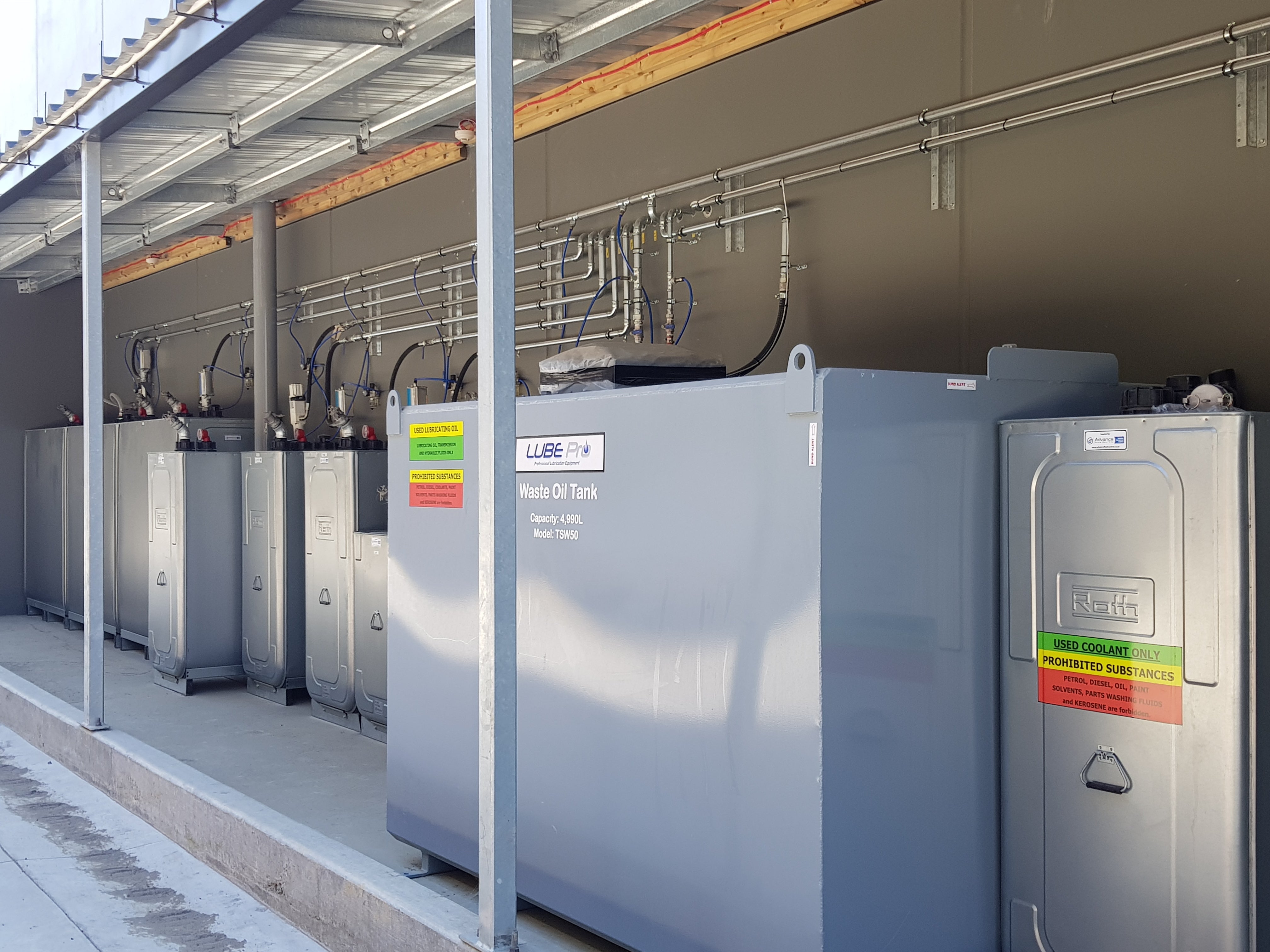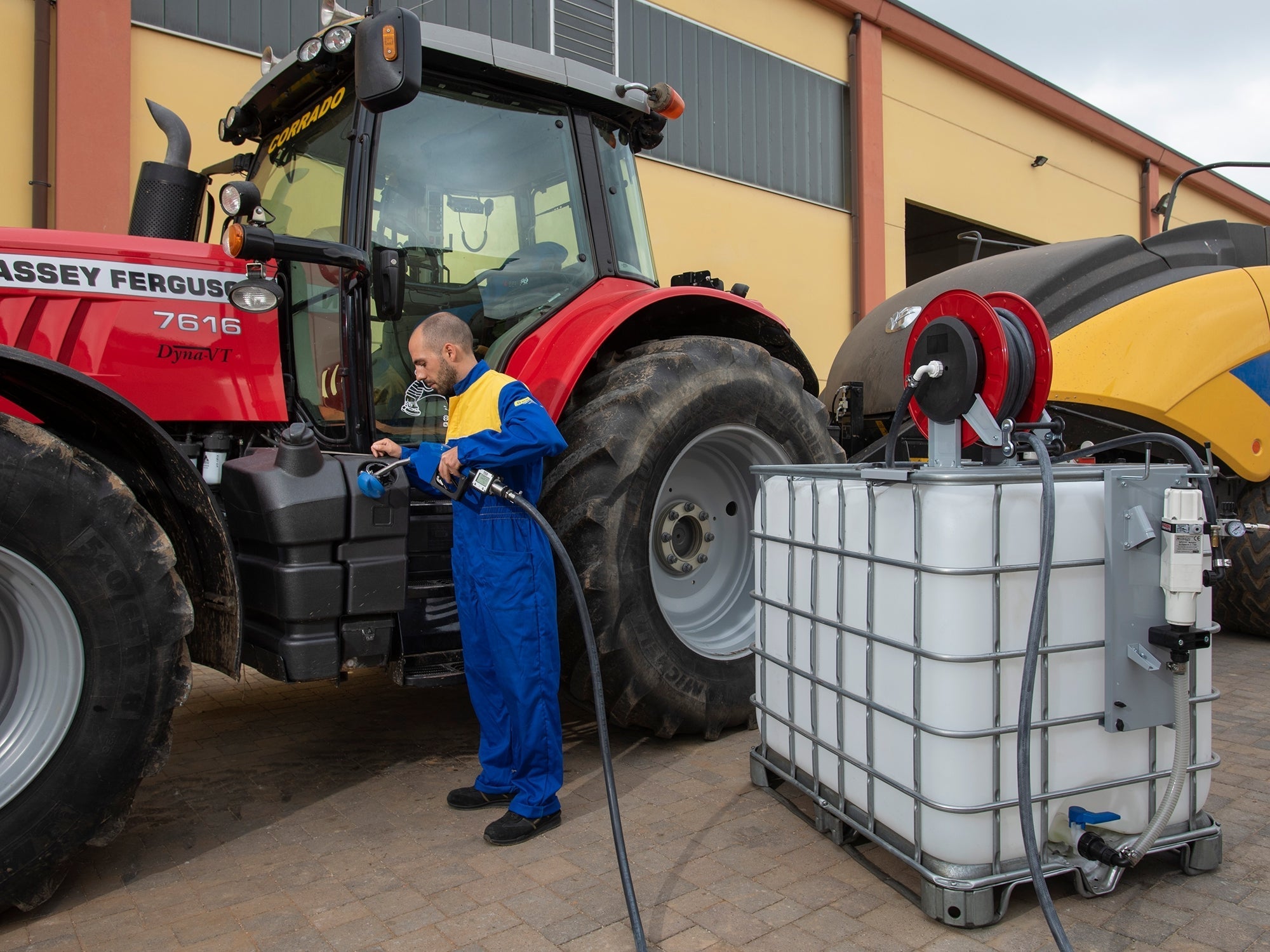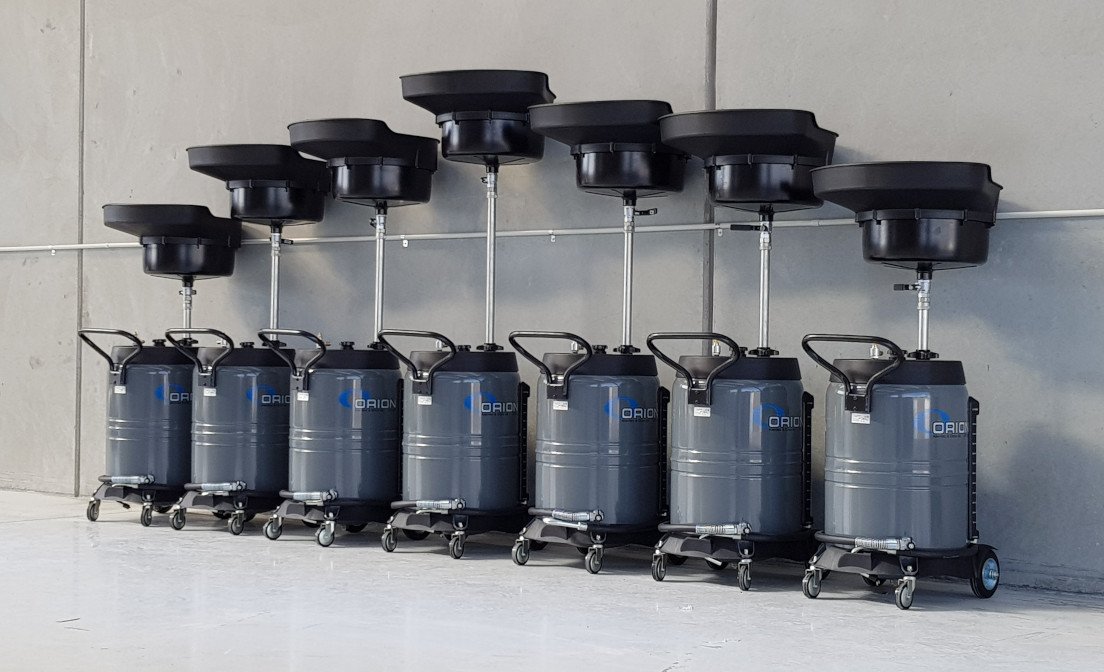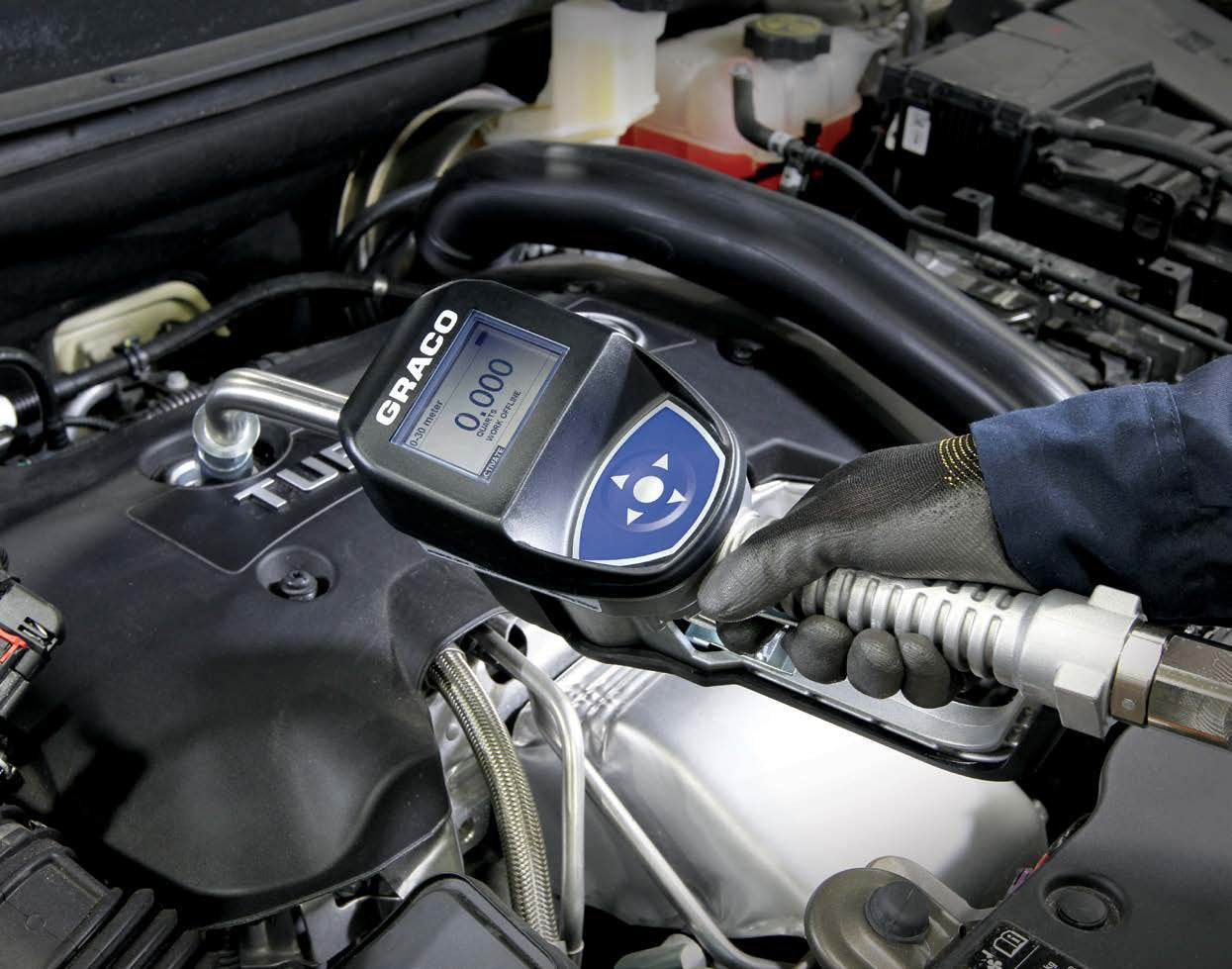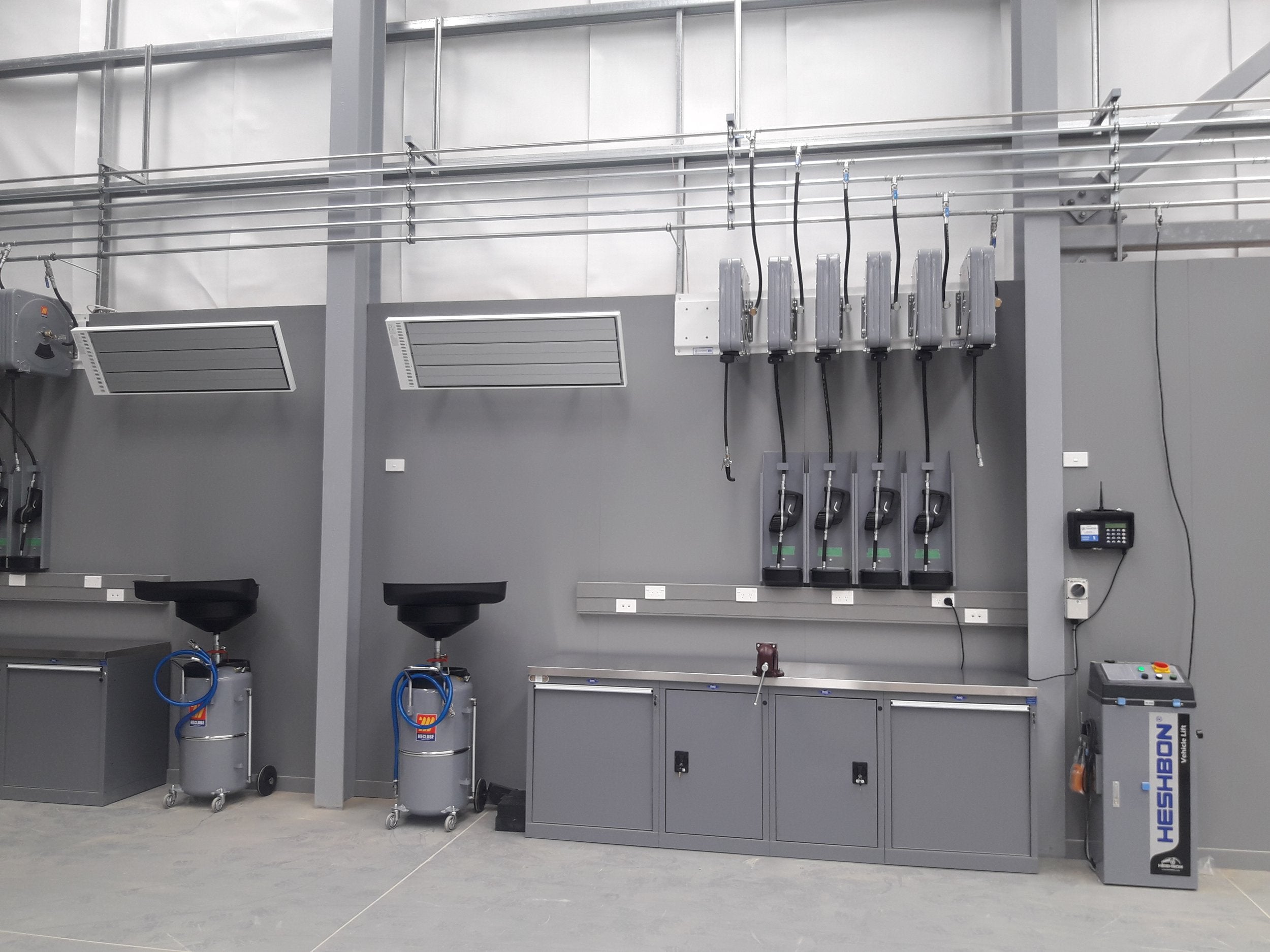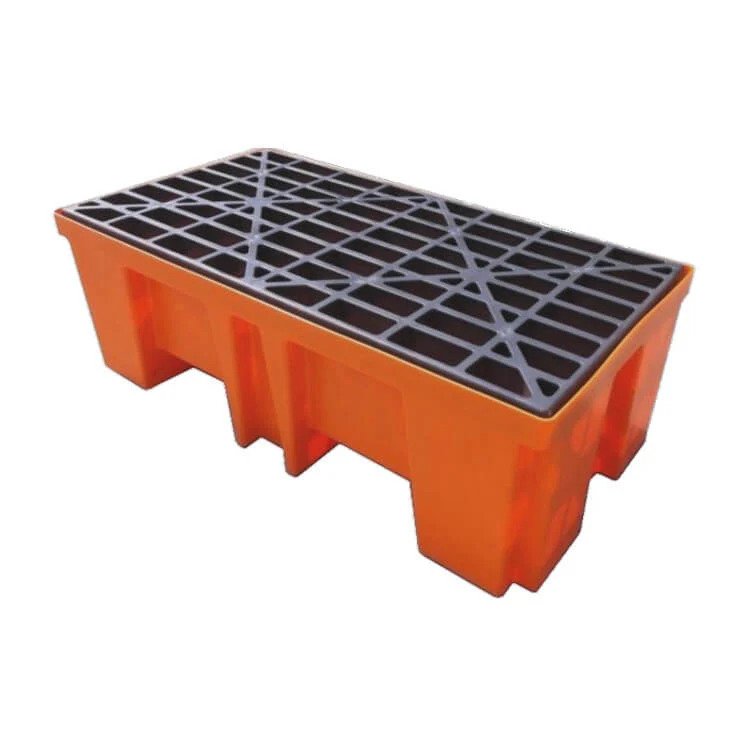Proper oil storage isn't just about operating at the highest level. It's the backbone of workplace safety and environmental protection.
Choosing the right oil tanks for sale presents a complex challenge. With various tank types, capacity requirements, and strict New Zealand regulations to navigate, many businesses struggle to make informed decisions. Whether you're looking for bulk oil storage tanks in Auckland or waste oil tanks for sale in Wellington
One wrong choice can lead to compliance violations, safety hazards, operational shutdowns, and costly retrofitting.
This comprehensive guide simplifies that process. We'll walk you through essential factors when selecting oil tanks for sale in New Zealand, covering compliance with oil storage regulations NZ, specific tank types, and waste management solutions.
Why Oil Storage Tank Types Matter

Selecting the appropriate oil storage tank isn't just a purchasing decision. It's a strategic choice that impacts every aspect of your operation.
Safety First: Protecting Your Workers and Assets
Proper oil storage tanks protect against fires, contamination, and exposure risks that threaten worker safety. Quality systems include integrated safety features like overfill protection and secure access controls that prevent accidents before they happen.
The right tank design eliminates hazardous manual handling, reduces slip risks from spilled oil, and provides secure containment that protects your team from harmful vapors and chemical exposure.
Compliance: Meeting Regulatory Requirements
Environmental protection remains non-negotiable in today's regulatory landscape. Modern storage solutions prevent soil and groundwater contamination while avoiding associated cleanup costs and legal penalties that can reach tens of thousands of dollars.
Your storage system must meet specific requirements including HSNO Act compliance for hazardous substance storage and Resource Management Act requirements for environmental protection. Non-compliance can result in immediate shutdown orders, fines up to $600,000 under the RMA, and personal liability for directors and managers.
Efficiency: Maximising Operational Performance
Seamless fuel and oil supply prevents costly downtime that can cost businesses hundreds, if not thousands, of dollars in lost productivity. When your storage system functions reliably, equipment operates continuously without interruption.
Clean, properly stored oil extends equipment life, reduces filter replacement frequency, and minimises unexpected breakdowns that disrupt your workflow. Whether storing engine storage oil or diesel fuel, your oil storage system must deliver consistent performance.
Financial Benefits: Protecting Your Bottom Line
Quality storage prevents product loss from spills and contamination while avoiding regulatory fines. The initial investment in proper storage pays dividends through reduced operational costs and risk mitigation. Consider that one major spill can cost more than several quality storage systems combined.
Understanding Oil Storage Regulations NZ: Compliance Requirements

Compliance with oil storage regulations NZ isn't optional. Key regulatory frameworks include the HSNO Act and local council bylaws governing hazardous substances.
Secondary containment through bunding represents a critical requirement for most commercial installations. Local councils may require resource consents for substantial storage systems.
Advanced Fluid Control designs all tanks with New Zealand regulations in mind, meeting current compliance standards while anticipating future regulatory changes.
Understanding Oil Storage Tank Types For Sale

Before selecting the right oil storage tank, you need to understand fundamental design categories.
Single-Skin vs. Bunded Tanks
Bunded tanks provide integrated secondary containment that simplifies compliance while enhancing safety. These double-wall systems contain spills automatically, reducing environmental risk and regulatory complexity. Most commercial applications benefit from bunded designs. Understanding these oil storage tank types helps determine the best solution for your specific needs.
Material Options
-
Steel tanks offer excellent strength for demanding industrial environments
-
Polyethylene options provide corrosion resistance for specific fluids
-
Fiberglass combines durability with chemical compatibility for specialised applications
Capacity and Orientation
Tank orientation affects installation requirements and space utilisation. Horizontal tanks suit space-constrained areas while vertical designs maximise storage capacity in smaller footprints.
Capacity planning ranges from small workshop tanks (200-1000 litres) to large bulk oil storage tanks (10,000+ litres) for industrial operations.
Most applications demand tailored solutions. Engine storage oil requires tanks designed for lubricant preservation, while fuel oil storage tank applications need diesel compatibility and fire safety compliance. Partnering with Advanced Fluid Control ensures you select the right configuration for your specific needs.
The Critical Role of Bunding

Bunding provides essential secondary containment that captures spills before environmental contamination can occur. This protective barrier represents your primary defense against operational disasters and regulatory violations.
Integrated Bunded Tanks
Double-skin construction offers automatic spill containment, eliminating external bund construction while providing superior protection. This simplifies installation and reduces total project costs.
External Bunds
Concrete bunds for oil storage tanks provide robust protection for bulk storage facilities. These permanent structures accommodate multiple tanks while meeting regulatory requirements.
In New Zealand, secondary containment is required for most hazardous substance storage, making bunding essential for compliance and environmental protection.
Specialised Needs: Waste Oil Tanks For Sale
Waste oil storage requires specialised solutions that address environmental responsibility, regulatory compliance, and recycling opportunities.
Key Features
-
Robust construction designed to prevent leaks throughout service life
-
Compliance with hazardous waste regulations
-
Enhanced safety features including overfill prevention
-
Integrated waste oil tank funnel systems for clean, spill-free disposal
Sizing Options
Available waste oil tanks range from compact workshop models to large industrial systems. Capacity selection depends on waste generation rates and collection frequency.
Bunded waste oil tanks are a preferred and often the required option for commercial applications. These systems provide automatic spill containment while meeting stringent regulatory requirements.
Exercise caution: Used systems may have compromised integrity or uncertain compliance status. New, certified tanks from Advanced Fluid Control provide guaranteed compliance and peace of mind.
Choosing the Best Oil Storage Tank Types for Your Needs
Supplier Reputation
Choose established suppliers like Advanced Fluid Control with proven track records in New Zealand's industrial market.
Certifications and Standards
Confirm tanks meet relevant New Zealand and international standards for your specific application requirements.
Support Services
Comprehensive after-sales service, spare parts availability, and technical support ensure long-term operational success.
Installation and Customisation
Professional installation services ensure proper setup while maintaining warranty coverage. Tailored solutions address specific site constraints, fluid types, and capacity needs.
Conclusion
Selecting appropriate oil tanks for sale requires you to have a full grasp of tank types, regulatory requirements, and specific operational needs. This decision critically impacts operational efficiency, environmental protection, and legal compliance — all of which are non-negotiable priorities that protect your business, workers, and community.
Advanced Fluid Control is your trusted partner for compliant, efficient oil storage solutions. Explore our comprehensive range of oil tanks for sale, including specialised waste oil tanks, or reach out to our New Zealand experts for tailored advice.
Frequently Asked Questions
1. What are the key factors to consider when buying oil tanks for sale in New Zealand?
Key factors include tank type (single vs. bunded), material, capacity, the specific type of oil (e.g., engine storage oil, diesel, waste oil), and, crucially, compliance with oil storage regulations NZ and local council bylaws.
2. Are bunded oil tanks mandatory for oil storage in NZ?
While not always strictly "mandatory" for every size, bunded (double-skin) oil storage tank types or external bunds (like concrete bunds for oil storage tanks) are highly recommended and often required by oil storage regulations NZ for most commercial and significant volumes of oil storage, especially for hazardous substances, to prevent environmental contamination.
3. What is the difference between an oil storage tank and a fuel oil storage tank?
An oil storage tank is a general term for storing various oils (lubricants, hydraulic fluids, waste oil). A fuel oil storage tank is specifically designed for storing fuels like diesel or heating oil, often with particular considerations for flammability and specific dispensing requirements within a broader oil storage system.
4. Can I use a regular tank for waste oil, or do I need specific waste oil tanks for sale?
It's highly recommended and often legally required to use tanks specifically designed as waste oil tanks for sale. These are built to safely contain hazardous waste, often come bunded (bunded waste oil tanks for sale), and are designed for easy, spill-free emptying, sometimes including features like a dedicated waste oil tank funnel. Using a general tank can lead to compliance issues and environmental risks.
5. How do I ensure my bulk oil storage tanks comply with NZ regulations?
To ensure compliance for bulk oil storage tanks, choose tanks that meet relevant NZ standards, ensure proper secondary containment (bunding), adhere to location and setback requirements, and obtain any necessary permits or consents from your local council and WorkSafe NZ. At Advance Fluid Control, we can guide you through these requirements.
6. Is it safe to buy a used waste oil tank or other used oil storage tanks?
While used waste oil tank or other used waste oil tanks for sale may seem cheaper, their integrity and compliance status can be uncertain. It's generally safer and more reliable to invest in new, certified tanks from trusted suppliers (like the team at Advance Fluid Control), as they come with warranties and guaranteed compliance with current oil storage regulations NZ.
Ready to upgrade your oil storage system? Contact Advanced Fluid Control today for expert consultation on tanks that meet your exact requirements while ensuring full regulatory compliance.
 is here! Shop now, pay later in 4 easy installments
is here! Shop now, pay later in 4 easy installments
